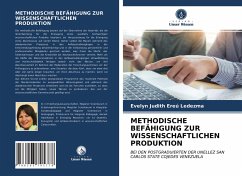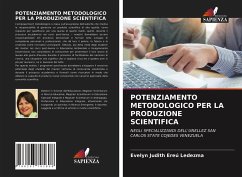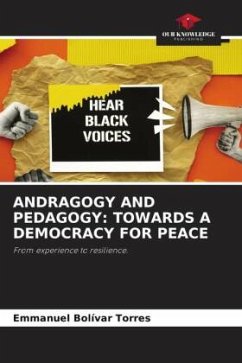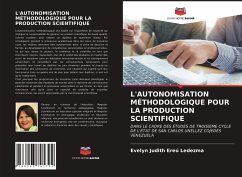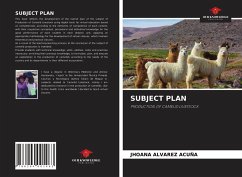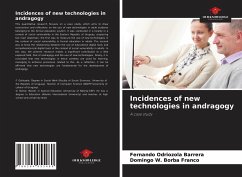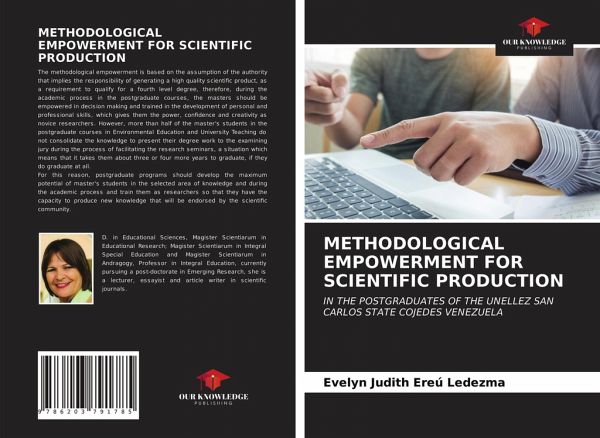
METHODOLOGICAL EMPOWERMENT FOR SCIENTIFIC PRODUCTION
IN THE POSTGRADUATES OF THE UNELLEZ SAN CARLOS STATE COJEDES VENEZUELA
Versandkostenfrei!
Versandfertig in 6-10 Tagen
27,99 €
inkl. MwSt.

PAYBACK Punkte
14 °P sammeln!
The methodological empowerment is based on the assumption of the authority that implies the responsibility of generating a high quality scientific product, as a requirement to qualify for a fourth level degree, therefore, during the academic process in the postgraduate courses, the masters should be empowered in decision making and trained in the development of personal and professional skills, which gives them the power, confidence and creativity as novice researchers. However, more than half of the master's students in the postgraduate courses in Environmental Education and University Teachi...
The methodological empowerment is based on the assumption of the authority that implies the responsibility of generating a high quality scientific product, as a requirement to qualify for a fourth level degree, therefore, during the academic process in the postgraduate courses, the masters should be empowered in decision making and trained in the development of personal and professional skills, which gives them the power, confidence and creativity as novice researchers. However, more than half of the master's students in the postgraduate courses in Environmental Education and University Teaching do not consolidate the knowledge to present their degree work to the examining jury during the process of facilitating the research seminars, a situation which means that it takes them about three or four more years to graduate, if they do graduate at all.For this reason, postgraduate programs should develop the maximum potential of master's students in the selected area of knowledge and during the academic process and train them as researchers so that they have the capacity to produce new knowledge that will be endorsed by the scientific community.
The methodological empowerment is based on the assumption of the authority that implies the responsibility of generating a high quality scientific product, as a requirement to qualify for a fourth level degree, therefore, during the academic process in the postgraduate courses, the masters should be empowered in decision making and trained in the development of personal and professional skills, which gives them the power, confidence and creativity as novice researchers. However, more than half of the master's students in the postgraduate courses in Environmental Education and University Teaching do not consolidate the knowledge to present their degree work to the examining jury during the process of facilitating the research seminars, a situation which means that it takes them about three or four more years to graduate, if they do graduate at all.
For this reason, postgraduate programs should develop the maximum potential of master's students in the selected area of knowledge and during the academic process and train them as researchers so that they have the capacity to produce new knowledge that will be endorsed by the scientific community.
The methodological empowerment is based on the assumption of the authority that implies the responsibility of generating a high quality scientific product, as a requirement to qualify for a fourth level degree, therefore, during the academic process in the postgraduate courses, the masters should be empowered in decision making and trained in the development of personal and professional skills, which gives them the power, confidence and creativity as novice researchers. However, more than half of the master's students in the postgraduate courses in Environmental Education and University Teaching do not consolidate the knowledge to present their degree work to the examining jury during the process of facilitating the research seminars, a situation which means that it takes them about three or four more years to graduate, if they do graduate at all.
For this reason, postgraduate programs should develop the maximum potential of master's students in the selected area of knowledge and during the academic process and train them as researchers so that they have the capacity to produce new knowledge that will be endorsed by the scientific community.



